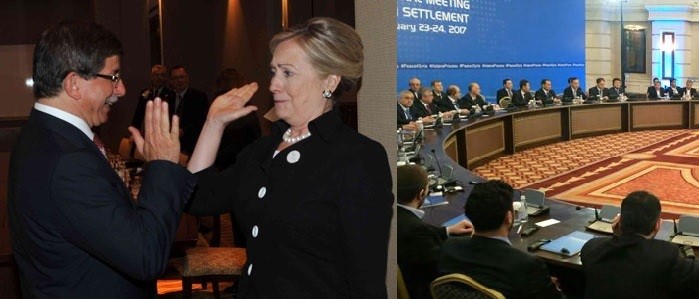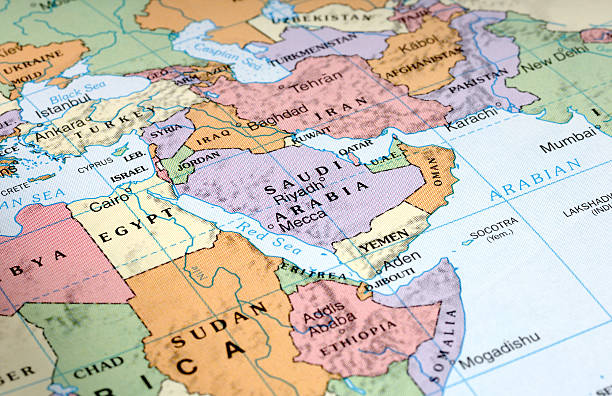
Turkey’s ruling Justice and Development Party’s (JDP) principal theme in the recent municipal election campaign was “the fight for Turkey’s survival”. The party and its supporters in the media claimed that Turkey was under the siege of external powers which were determined to block Turkey’s path to becoming a global player through an array of conspiracies. Who those powers are, was never spelled out. Nonetheless, Turkish government’s disappointment with Western reaction to the Gülenist coup attempt of July 15, 2016, continuing frustration with the support extended to the PYD/YPG and the s400s/s35 conundrum offer some clues and these only point toward the US and the EU, in other words, Turkey’s traditional Western allies.
The Ottoman Empire, having failed to keep apace with world’s leading powers, had an acute survival problem in the final stages of its decline. Not only its territories beyond Turkey’s present borders but also Istanbul, the Bosporus and coastal regions of Anatolia were up for bargaining between European powers since the demise of the Ottoman Empire was a foregone conclusion. These came to a head during the First World War, but with Turkey’s War of Independence under Ataturk’s leadership “modern Turkey emerged from the ashes of the Empire” to use a popular phrase. This is why the hundredth anniversary of Ataturk’s launching that epic struggle in the Black Sea city of Samsun was celebrated with nationwide expressions of joy and gratitude last Sunday.
Like many other countries in different parts of the world Ataturk’s Turkey was also faced with security threats, especially during the Cold War. However, these were easily defined threats which led Turkey eventually to become a member of NATO.
The end of the Cold War raised hopes for greater international stability, but these were frustrated by regional conflicts and great power tension/competition. Regardless, Turkey’s cooperation with Russia continued to expand serving the interests of both nations. Ankara’s growing cooperation with Moscow did not lead to questions or suspicion in the West. As a matter of fact, Turkey was not the only NATO country moving in that direction.
JDP leadership’s misguided foray into the Syrian conflict wrecked a well-balanced foreign policy. And interestingly, from partnering with the West for President Assad’s ouster we went to the other end and became a partner of Russia and Iran, his principal supporters. Nonetheless, it is worth remembering that NATO foreign ministers decided on 4 December 2012 to augment Turkey’s air defense capabilities in order to defend the population and territory of Turkey against threats posed by missiles from across its border with Syria. As of January 2013, five Allies contributed missile batteries to augment Turkey’s air defense: Germany, Italy, Spain, the Netherlands, and the United States. Currently, Spain and Italy provide one Patriot missile battery and one ASTER SAMP/T battery each to the deployment which is under NATO command and plugged into NATO’s air defense system.
Moreover, when Turkish air force downed a Russian Su-24 for having violated our airspace for 17 seconds in November 2015, the then foreign minister Mr. Davutoğlu rushed to Brussels for allied support.
Whatever its internal political dividends, if any, saying that Turkey has a survival problem is an exaggeration of the dangerous kind. Because, it raises questions regarding Turkey’s future. Even repeating often that Turkey faces security threats arising from the situation in Syria is not good public diplomacy. If nothing else, it does not match government’s claim of being more than a regional power. If, however, the JDP leadership is determined to continue with its current stance, it must then admit that it is solely responsible for Turkey’s current impasse in Syria. Because, getting involved in Syria was their choice and they are the ones who must find a way out. Unfortunately, this has now become a daunting task far more important than winning the İstanbul Metropolitan Mayoralty.
It is past time that the JDP rank-and-file and the party faithful understand that our real problem is not “Turkey’s survival” but “the survival of Turkish democracy”. Because, a functioning democracy does not allow the government to plunge into military conflicts, proxy wars. This is how the Turkish Parliament rejected Washington’s call for “full cooperation” on the eve of the invasion of Iraq in 2003. And this is how British MPs rejected, with the hindsight of Iraq, possible UK military action against Syrian President Assad’s government to deter the use of chemical weapons in 2013.
There is no question that Turkey should maintain excellent relations with Russia, that we should constantly explore new ways of enhancing our cooperation to mutual advantage. At a time of economic distress, we surely need Russian tourists on our Mediterranean shores. More importantly, we know that they form a people-to-people bridge between the two nations. However, the Turkish government also needs to think about Moscow’s perception of the final destination of our relationship. And, if it were to share this perception it must say so publicly and allow for an extensive national debate because this would involve a lot more than a foreign policy adjustment. And for all that, it must make better use of the institutional competence of the Turkish Ministry of Foreign Affairs representing a hundred years of diplomatic experience with centuries of Ottoman history in the background.
As I have repeatedly said, to carry Turkey forward the JDP did not have to gather an army, fight the victors of a world war, fight foreign invasion, rebuild the country’s foreign and security policy infrastructures and economy from scratch. All of that was achieved starting with our War of Independence under Ataturk’s leadership, the declaration of the Republic and the far-reaching reforms which earned us world’s respect and inspired peoples fighting for national liberation. The challenges we face today are nothing in comparison with those faced by Ataturk and his comrades in arms. All the JDP leadership had to do was to build on that solid foundation, keep Turkish democracy on track, refrain from getting involved from regional conflicts and the rest, including continuing economic growth and a unique global status, if not major power status, would have followed. The JDP squandered a historic opportunity which would have made Turkey Middle East’s northern star and an indispensable partner not only for the West but also for Middle East countries and Russia. Unfortunately, the best we can do now is damage control.
Ali Tuygan, Ambassador (Ret’d) and former Undersecretary of the Turkish Foreign Ministry. The article is also published on his blog









